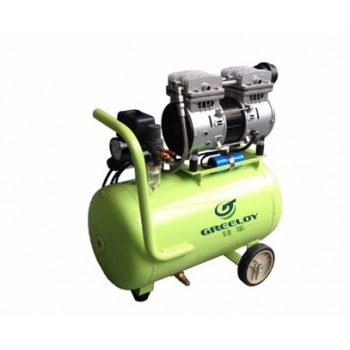Among all of the dental equipment that you will need in your dental office, there are a few select items that you simply cannot go without. Dental air compressors are essential for performing some of the most routine tasks in dentistry.

About 74% of adults believe that an unattractive smile can hurt their career success, and 100% of dentists should know that they cannot restore a smile without the right kind of equipment. One of the most basic and essential tools for dentists is a dental air compressor. When investing in dental air compressors, you need to evaluate the specific needs of your office. Oil-free compressors require very little maintenance and are less expensive than lubricated compressors, but you may be inclined to opt for lubricated versions for a variety of reasons.
Between silent, mini, and oil free models, the selection of dental air compressors is both widespread and vast. As modern technology advances and as the options of dental air compressors expand, selecting and purchasing a new model can seem somewhat overwhelming. Information on choosing the right compressor is somewhat scarce but there are a few important factors that dentists should always consider before investing in a new machine. Dental air compressors can be a costly addition to an operatory; thus making it vital for buyers to take an ample amount of time to research and select the proper model for one’s practice.
Dentists in search of a new dental air compressor can begin by searching for models with oil-free reliability. Oil and dentistry simply do not mix. Every operatory requires compressed air to function and operate. However, if the air a dentist uses to run their practice has poor quality, the effects can be extremely detrimental. Having unclean air can negatively impact not only the patient- but the staff, dentist, various procedures and operating costs as well. Compressors which require oil lubrication are consistently adding oil vapor to the stream of compressed air that is released.
Even if the compressor is top of the line, it is impossible for it to filter out all of the oil from the air. The vapor from the oil will eventually negatively impact dental instruments, components and tools as they become clogged and damaged over time. This can result in costly maintenance updates and repairs. Also, much like a vehicle, dental air compressors which use oil require routine oil changes as they steadily expel oil overtime. This can be time consuming to the dentist as oil levels must be checked on a regular basis. By selecting a model with an oil-free compressor, you can eliminate these problems and save both time and money over time.